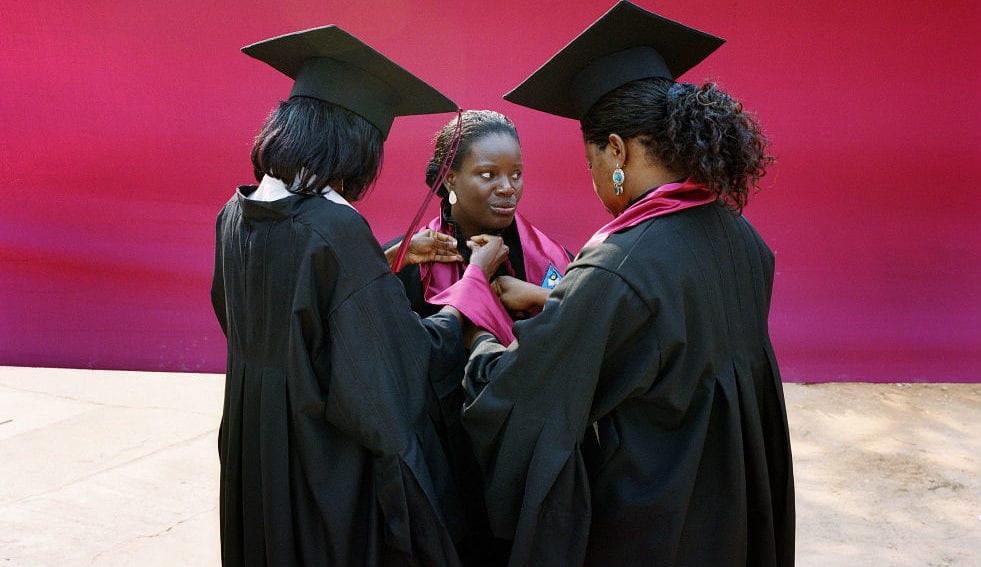Send to a friend
The details you provide on this page will not be used to send unsolicited email, and will not be sold to a 3rd party. See privacy policy.
Africa’s universities can take concrete steps to boost doctoral education and research, argues Goolam Mohamedbhai.
Global university rankings measure how universities perform based on a range of indicators. The most influential ones focus heavily on research, using criteria such as academic reputation surveys and citations in international or high-impact journals.
But such criteria are not relevant to African universities. Their priorities should be research to solve the myriad development challenges facing the region; communicating their findings appropriately to stakeholder groups (which may not be about publishing in high-impact journals); and engaging with the wider community to meet internationally agreed development goals.
These priorities do not fit the criteria for global rankings.
But African universities face enormous challenges in promoting research to support development, especially through doctoral education.
Too few doctoral students
One such challenge is promoting doctoral-level education. Most African countries are following a higher education strategy that focuses mainly on increasing undergraduate student enrolment. But it needs to be approached with caution.
As a result of this strategy, the massive increase in student enrolment over the past couple of decades has not been accompanied by a proportionate increase in academic staff. This has brought heavy teaching loads, leaving academic staff little time for research. And it has dented the quality of education received by students who graduate from their first degree, and are the potential postgraduate students.
Also, most public universities find it difficult to recruit new staff, or even retain existing ones, because of poor salaries. And the proportion of current academic staff holding a PhD is very low, so the capacity to initiate research and supervise doctoral students is already weak.
The obstacles don’t stop there. Most universities lack an institutional policy and strategy for research, and their structure for managing doctoral students is either weak or non-existent. For example, accurate data on PhD enrolment and research projects are rarely available in African universities.
Doctoral research is therefore very much a personal enterprise. Researchers need to secure funding for their work, and use the findings for their own promotion through publications in international journals. Rarely do their results, even when relevant to development, reach the appropriate community or inform policy.
Missions and management
African governments can take several initiatives to both improve research capacity and boost postgraduate education. First, they should abandon the approach of creating new universities in the existing model, or upgrading technical colleges and polytechnics to universities. Tertiary education needs ‘mission differentiation’.
In practice, this means that governments should support some of their existing universities to become research-strong institutions running Master’s and PhD programmes while also offering undergraduate courses. Most staff should have a PhD and should be freed from heavy teaching loads so they can undertake research.
The other tertiary institutions should place greater emphasis on the equally important mission of teaching and learning at undergraduate level. Only then can quality research really flourish in African countries. It would be impossible, and unnecessary, for most staff in all tertiary institutions on the continent to have a PhD.
African universities should also develop a clear research policy and strategy. This should be closely linked to their country’s development needs and in line with their institution’s priority subjects and capacity. All doctoral research should be aligned with identified development areas.
Each university will also need a central unit to manage research and postgraduate education — to decide on financial incentives for students and supervisors, for example, and run training seminars. Such a unit would not supersede the department’s academic role but would complement it in administrative matters.
In addition, postgraduate students should be required to prepare a simple, concise brief of their findings and recommendations, aimed at the end-user community or at policy makers. At present, most results get published in academic journals, or appear in theses on library shelves: in both cases findings are inaccessible to the people who need them.
Money matters
Lack of funds is another major constraint. African governments don’t put enough money into research; and at institutional level the funds allocated to institutions get absorbed by salaries and teaching provision. So most research in African universities is funded by external donors. Given the financial situation facing most African countries, this is likely to continue.
There are many opportunities to apply for competitive research grants but African academics lack experience in applying for them — so training is urgently needed.
The limited funding translates to poor infrastructure and human resources for research. Regional collaboration and networking, as supported by most development agencies and donors, have a key role to play in overcoming these challenges.
For example, the Consortium for Advanced Research Training in Africa (CARTA), funded by several donors, links universities and research organisations with equivalent institutions in more developed countries, and supports doctoral training in health and development. Similarly, the Regional Initiative in Science for Education (RISE), funded by the Carnegie Corporation of New York, supports networking to help African universities build research capacity and develop postgraduate studies in key development areas such as water resources and biotechnology.
African universities need reforms that promote research. But these reforms should extend to putting the research to practical use — research in Africa should not be undertaken merely to generate knowledge but also to help promote sustainable development. Any attempt to boost research in African universities that simply aspire to global rankings would not only waste scarce resources but would also be inappropriate, given the need to address development challenges.
Goolam Mohamedbhai is former secretary-general of the Association of African Universities, former president of the International Association of Universities and former vice chancellor of the University of Mauritius. He can be contacted at [email protected]
This article is part of the Spotlight on Making higher education work for Africa.














